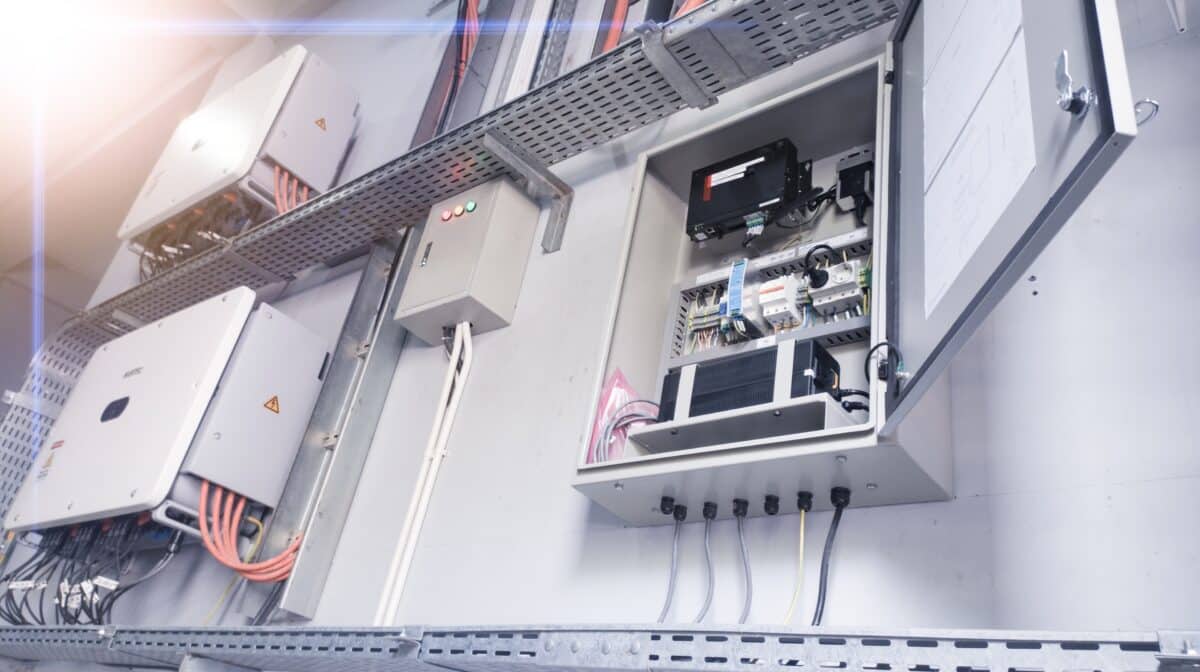How to Optimize Your Home with Integrated Electrical Systems

In today’s fast-paced world, optimizing your home with integrated electrical systems is more than a luxury; it’s a necessity. These systems not only enhance the functionality and energy efficiency of your home but also offer a seamless experience that simplifies your daily life. As we delve into the benefits of integrated electrical systems, it’s important to consider how they can transform your living space into a more cohesive and efficient environment. From Florence, SC, to the neighboring communities of Quinby and Woodland Park, homeowners are recognizing the value of integrating their electrical systems for a smarter home.
Integrated electrical systems provide a centralized control over your home’s lighting, heating, and other electrical appliances. This means with just a touch of a button, you can adjust settings across your home, improving convenience and reducing energy consumption. Imagine the ease of managing your home’s environment without moving an inch, whether you’re cozying up in Quinby or enjoying the outdoors in Woodland Park, SC. The adaptability and efficiency of these systems make them an essential component of modern living.
Moreover, these systems are not just about convenience; they’re also about safety and energy conservation. By allowing homeowners to monitor and control their energy usage, integrated electrical systems contribute to a more sustainable future. This is particularly important in areas like Florence, SC, where energy efficiency can also mean significant savings on utility bills. Such systems ensure that you’re using energy where it’s needed, reducing waste and promoting a healthier environment.
Lastly, the integration of electrical systems in your home can significantly boost its value. Whether you’re in Florence, Quinby, or Woodland Park, SC, upgrading to an integrated system can be a wise investment. Not only does it make your home more attractive to potential buyers, but it also sets the foundation for further technological enhancements. As we move towards a more connected and automated world, the importance of having a home that can adapt and evolve cannot be overstated.
Understanding Integrated Electrical Systems
Understanding integrated electrical systems starts with recognizing their role in merging various home technologies into a unified whole. These systems allow homeowners to connect and manage their electrical devices efficiently. For instance, in Quinby, SC, a resident could control their lighting, heating, and security systems from a single interface. This not only simplifies daily tasks but also enhances the overall home management experience.
Integrated electrical systems also play a crucial role in energy management. By providing real-time data on energy consumption, they enable homeowners to make informed decisions about their usage. In Woodland Park, SC, for example, this could mean adjusting the thermostat remotely to save energy when the house is empty. Such proactive management helps in reducing unnecessary energy waste and lowering utility bills.
Furthermore, these systems offer significant advantages in terms of safety and security. They can detect irregularities in the electrical system, such as short circuits or overloaded circuits, and alert homeowners immediately. This immediate notification can prevent potential hazards, ensuring a safer living environment. In addition, the ability to monitor and control the home remotely adds an extra layer of security, giving homeowners peace of mind.
Lastly, the integration of electrical systems is not just about the present benefits; it’s also about future readiness. As technology advances, homes equipped with integrated systems can easily incorporate new features and innovations. This adaptability makes homes more appealing to potential buyers and increases their market value. It shows that investing in integrated electrical systems is not only about enhancing current living standards but also about securing the home’s future in the technological landscape.

Photo from iStock – Credit: bancha singchai
The Benefits of Upgrading to Integrated Systems
Upgrading to integrated electrical systems brings numerous benefits that extend beyond mere convenience. Homeowners in Florence, SC, find that these systems enhance their daily lives by offering unparalleled control over their home environments. With the ability to manage all electrical devices from a single point, efficiency and ease of use significantly increase. This centralized control system simplifies routine tasks, making it easier to enjoy the comforts of home without hassle.
In terms of energy savings, integrated electrical systems stand out by providing real-time insights into energy consumption. Residents of Woodland Park, SC, can adjust their energy use with precision, leading to substantial reductions in utility bills. This smart management of resources not only lowers costs but also supports environmental sustainability. By optimizing energy usage, these systems help in conserving energy and reducing the overall carbon footprint of a household.
Safety is another critical area where integrated electrical systems make a significant impact. They monitor the home’s electrical network for any signs of malfunction, promptly alerting homeowners to potential dangers. This immediate notification can prevent accidents, ensuring a safer living environment for families. Moreover, the remote monitoring capabilities offer peace of mind, knowing that the home’s electrical aspects are under vigilant supervision, even when away.
Lastly, the future-proof nature of integrated electrical systems cannot be overstated. As technology evolves, these systems allow for easy updates and integration of new features, keeping homes at the forefront of innovation. This adaptability not only enhances the living experience but also increases the property’s value, making it a smart investment for any homeowner. In essence, upgrading to an integrated system is a forward-thinking decision that pays dividends in convenience, safety, and efficiency.
Key Components of an Integrated Electrical System
Understanding the key components of an integrated electrical system is crucial to maximizing its benefits. One essential element is the central control unit, which acts as the brain of the system, allowing homeowners in Quinby, SC, to manage their home’s devices from a single point. This unit coordinates the activities of various subsystems, ensuring they work in harmony. Its ability to integrate seamlessly with different technologies enhances the system’s efficiency and user-friendliness.
Another vital component is the user interface, which provides an intuitive means for homeowners to interact with their integrated electrical systems. Whether it’s a wall-mounted panel, a smartphone app, or a voice-activated device, this interface makes controlling the home’s electrical aspects straightforward. Residents of Woodland Park, SC, appreciate the simplicity with which they can adjust settings, demonstrating the system’s adaptability to the user’s needs.
Sensors play a pivotal role in the functionality of integrated electrical systems. They continuously monitor the environment, detecting changes in temperature, light, and movement, among other factors. By providing real-time data to the central control unit, sensors enable the system to respond dynamically, adjusting the home’s electrical devices to maintain optimal comfort and efficiency.
Lastly, the communication network is the backbone of any integrated electrical system, ensuring all components stay connected and communicate effectively. This network allows for the smooth transmission of commands and information across the system, facilitating a responsive and cohesive home environment. By linking the central control unit, user interface, sensors, and other subsystems, the communication network is essential for the seamless operation of integrated electrical systems.
Planning Your Home’s Integrated Electrical System Upgrade
When planning your home’s upgrade to integrated electrical systems, the first step is to assess your current electrical setup. This involves understanding the capacity of your existing system and identifying areas that need improvement. For homeowners in Quinby, SC, this might mean evaluating the efficiency of current lighting and heating systems. Recognizing these aspects ensures a smooth transition to a more integrated and efficient system.
Next, consider the goals you aim to achieve with the integrated electrical systems. Whether it’s enhancing energy efficiency, improving safety, or simply adding convenience, your objectives will guide the customization of your system. In Woodland Park, SC, a homeowner might prioritize remote control of security systems, while another in a different area could focus on smart energy management. Tailoring the system to meet these goals is crucial for maximizing its benefits.
Collaborating with a professional electrician who has experience in integrated electrical systems is also essential. They can offer valuable insights into the latest technologies and how they can be adapted to your home’s specific needs. Their expertise ensures that every component of your system, from sensors to user interfaces, is installed correctly and functions seamlessly. This partnership is key to achieving an efficient and reliable integrated system.
Finally, plan for the future by choosing a system that can adapt to technological advancements. Integrated electrical systems should not only meet your current needs but also have the capacity to incorporate new features and devices. This foresight ensures your home remains at the cutting edge of technology, enhancing its value and functionality over time. By following these steps, you can ensure your home in Florence, SC, benefits from the latest in electrical system integration.
How Integrated Electrical Systems Enhance Energy Efficiency
Integrated electrical systems significantly enhance energy efficiency by allowing homeowners to control their energy use with unprecedented precision. In Quinby, SC, residents can adjust their heating and cooling systems to match their schedules, ensuring that energy is not wasted when the home is unoccupied. This smart use of energy not only reduces utility bills but also lessens the environmental impact. By optimizing energy consumption, these systems contribute to a more sustainable and cost-effective household.
In Woodland Park, SC, the integration of lighting systems into the home’s electrical network exemplifies another layer of efficiency. Homeowners can set lights to dim or turn off automatically when rooms are not in use, further conserving energy. This level of control extends beyond convenience, offering a practical solution to reduce energy expenditure. As a result, the household becomes a model of energy efficiency, combining comfort with responsibility.
The ability of integrated electrical systems to provide real-time feedback on energy usage is a game-changer for homeowners. This instant access to data empowers them to make informed decisions about their energy consumption. Whether it’s identifying which appliances use the most energy or understanding peak usage times, this information is invaluable. Armed with these insights, residents can adjust their habits and settings to achieve optimal energy efficiency.
Lastly, the future-proof nature of integrated electrical systems ensures that homes remain efficient and up-to-date with the latest energy-saving technologies. As new devices and appliances become available, they can easily be incorporated into the existing system, maintaining a high level of energy efficiency. This adaptability not only secures the home’s value but also supports ongoing efforts to reduce energy consumption. Through thoughtful integration and use of these systems, homeowners in Florence, SC, and beyond can enjoy a more efficient, sustainable living environment.
Smart Home Integration with Your Electrical System
Smart home integration with your electrical system elevates the concept of living in Quinby, SC, to new heights. By connecting smart devices to integrated electrical systems, homeowners gain unparalleled control over their living spaces. This connection allows for the automation of daily tasks, from adjusting the thermostat to managing security systems. It transforms homes into highly efficient, personalized environments that respond to the unique needs of their inhabitants.
In Woodland Park, SC, the convenience offered by smart home integration extends beyond simple comfort. It enables residents to monitor their energy use more effectively, leading to more informed decisions about consumption. For example, homeowners can see the impact of using certain appliances during peak hours and adjust their use accordingly. This level of insight fosters a more sustainable lifestyle, reducing waste and promoting energy conservation.
The safety benefits of integrating smart home technologies with your electrical system cannot be overstated. Homeowners can receive immediate alerts about potential electrical issues or security breaches, allowing for quick responses to protect their property and loved ones. This proactive approach to safety adds a layer of security that traditional systems cannot match, offering peace of mind in an unpredictable world.
Lastly, the adaptability of integrated electrical systems with smart home technologies prepares homeowners for future advancements. As new devices and applications emerge, they can be seamlessly incorporated into the existing setup. This ensures that homes in Florence, SC, and beyond remain at the forefront of technological innovation, enhancing both their functionality and market value. Through smart integration, homeowners can create living spaces that are not only efficient and safe but also adaptable to the evolving landscape of smart technology.
Installation and Maintenance of Integrated Electrical Systems
Installing integrated electrical systems in your home is a step toward modern living, enhancing both functionality and efficiency. Professionals skilled in these systems ensure a seamless setup, integrating new technology with your existing electrical infrastructure. In Quinby, SC, homeowners rely on expert installation to optimize their energy use and control systems. This process not only streamlines the integration but also tailors the system to meet individual needs and preferences.
Maintenance plays a crucial role in the longevity and efficiency of integrated electrical systems. Regular check-ups help identify potential issues before they escalate, ensuring the system operates at peak performance. In Woodland Park, SC, maintenance services provide peace of mind, knowing that the system’s health is continuously monitored. This proactive approach minimizes disruptions and extends the life of the integrated system.
Upgrading to an integrated electrical system also involves understanding its components and how they work together. Homeowners are encouraged to familiarize themselves with the basics of their system, from user interfaces to sensors. This knowledge empowers them to make informed decisions about their energy usage and system adjustments. It also simplifies communication with technicians, making maintenance visits more efficient.
Finally, the beauty of integrated electrical systems lies in their adaptability. As technology advances, these systems can easily incorporate new features, keeping your home up-to-date. This adaptability ensures that homes in Florence, SC, and surrounding areas remain at the cutting edge of convenience and efficiency. With proper installation and maintenance, integrated electrical systems offer a smart, sustainable solution for modern living.

Photo from iStock – Credit: cagkansayin
Frequently Asked Questions
What are integrated electrical systems?
Integrated electrical systems connect and manage all your home’s electrical devices through a single network. This setup boosts energy efficiency and enhances functionality. By streamlining operations, it allows for easier control and monitoring of your home’s energy use. Essentially, these systems offer a smarter, more cohesive way to manage your household’s electricity.
How do they improve home efficiency?
Integrated electrical systems streamline your home’s energy use, making it more efficient. By allowing devices to communicate, they reduce unnecessary power consumption. This smart management leads to lower energy bills and a smaller carbon footprint. Overall, these systems enhance your home’s functionality while promoting sustainability.
What is the cost of installing integrated electrical systems?
The cost of installing integrated electrical systems varies based on your home’s size and specific needs. Generally, investing in these systems can offer long-term savings on energy bills. Mister Sparky provides customized quotes to ensure you get the best value for your setup. By choosing a tailored solution, homeowners can maximize efficiency and enjoy seamless control over their electrical devices.
Can you DIY integrated electrical systems?
Installing integrated electrical systems requires professional skills and knowledge. These complex setups involve coordinating various devices and ensuring they communicate effectively. Attempting a DIY approach might lead to costly mistakes or safety risks. It’s best to consult with experts like Mister Sparky, who can ensure a seamless and safe installation.
What are the latest trends in integrated electrical systems?
The latest trends in integrated electrical systems focus on smart technology and energy efficiency. Homeowners now enjoy systems that learn from their habits, optimizing energy use and reducing costs. Voice-activated controls and remote management via smartphones are becoming standard features. These advancements make managing home energy simpler and more intuitive, ensuring comfort and convenience.
















